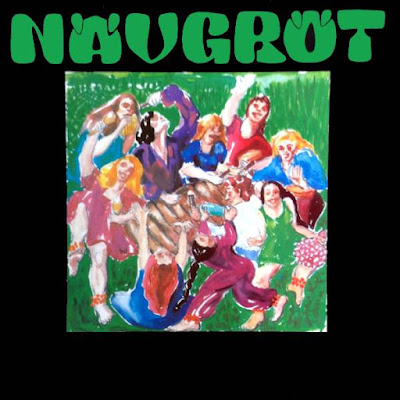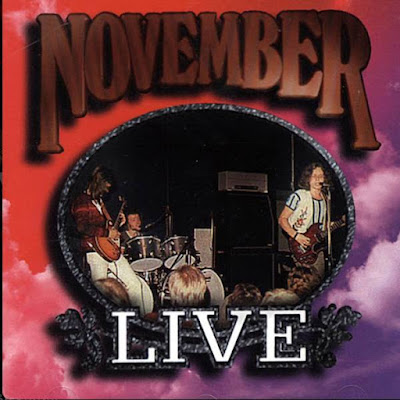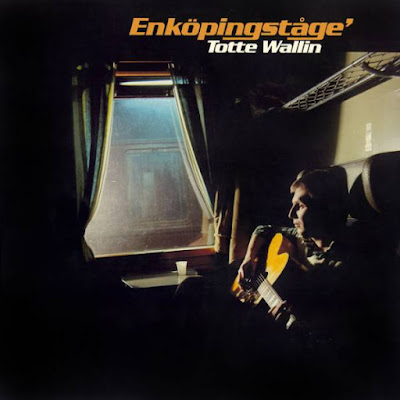LUCAS – Antisocial Season / Hymn To
The Sun (Polar, 1967)
English vocals
International
relevance: ***
The 'A' side is a slightly New Orleans tinged piano
based track and not very good, but ”Hymn To The Sun” is nothing
less than excellent hazy, UK styled psychedelia. The track is a real
masterpiece unfairly overlooked even by connoisseurs, and
impressively enough an original group composition. Never very
expensive, but if people knew just how great it is, the prices would
surely go up quickly. Piano player and singer Janne ”Lucas”
Persson later joined Pugh Rogefeldt and Ola Magnell on the ”Ett
steg till” tour which was documented on a double album in 1975.

SLEEPSTONES – As The Night Comes
To See / I Put A Spell On You (Columbia, 1967)
English
vocals
International relevance: **
The Sleepstones were Jan Schaffer's first proper band, going back to as early as 1962. They
changed their name several times before settling for the name under
which they recorded five singles between 1964 and 1967, with ”As
The Night Comes To See” being their last. The 'A' side is a rather
elegant, harmony-laiden moody ballad which is quite nice but with a cheesy chorus. The flipside is the old Screamin' Jay
Hawkins standard, covered over and over again by uncountable bands
over the years, most famously by Creedence Clearwater Revival. The
Sleepstones go for an organ heavy arrangement that breathes Swedish
folk jazz. A dynamic and driven take with vocalist Ted Åström at
his most soulful. Not the best version I've heard, but
definitely a very credible perfomance of an international stature.

ATTRACTIONS – Let Love Come Between
Us / 5th February 1968 (Columbia, 1968)
English vocals,
instrumental
International relevance: **
It's not quite true that The Sleepstones only made five singles, because The
Attractions were basically the same band and released two further 45s in 1968. ”Let Love Come Between Us” is a
mediocre sunshine pop track with a steady beat, nothing special. But
the 'B' side draws the lines of "I Put A Spell On You" further with a six and a half minutes instrumental workout in a
psychy, progressive jazz vein, rich with organ and a proof that
Schaffer was a force to be reckoned with already early on.
 CHEERS
– Love Me Two Times / Somebody To Love
CHEERS
– Love Me Two Times / Somebody To Love (Decca, 1968)
English
vocals
International relevance: **
A Stockholm band that was active a
couple of years before they had this 45 out with two Summer of Love
covers. ”Love Me Two Times” is a competent but redundant take on
The Doors while Jefferson Airplane's ”Somebody To Love” gets an
inspired and pretty intense treatment. Both tracks have been comped,
”Somebody To Love” even twice, on ”Who Will Buy These Wonderful
Evils, Vol. III” and RPM's excellent survey of Swedish garage rock
”Svenska Shakers”.
 MEMBERS BLUES BAND – One Night / P.S.
Elic
MEMBERS BLUES BAND – One Night / P.S.
Elic (Jacks Beat, 1968)
English vocals
International relevance:
***
Swedish band on a Danish label. ”One Night” is a
completely pointless cover of the Elvis track while the flipside is
one of the most fantastic psych tracks ever recorded in Sweden.
Perhaps even in the world. Overflowing with backwards sounds and
treated vocals, it could have been a highlight on Freak Scene's
”Psychedelic Psoul” album. An absolute masterpiece in perfect
tune with the times. Thankfully included on ”Who Will Buy These
Wonderful Evils, Vol. III” as originals are incredibly rare,
changing hands for up to 500 dollars.
 ZOOM – Coloured Rain /
Ticket To Ride
ZOOM – Coloured Rain /
Ticket To Ride (RCA Victor, 1968)
English vocals
International
relevance: **
When Members Blues Band broke up, two of their
members went on to form Zoom. Again they had to approach a
neighbouring country to secure a one-single deal, this time Norway.
”Coloured Rain” is the well-known Traffic number, here extended
to twice its original length by a decidedly psychy and meritorious
organ solo. The Beatles' ”Ticket To Ride” is slowed down to
Vanilla Fudge tempo but the rendition is lightweight.
ARDY THE
PAINTER OF LOVE – Pregnant Rainbows For Colourblind Dreamers
(Sonet, 1970)
English vocals, spoken
word
International relevance: **
This ”painter of love's”
real name was Ardy Strüwer and the same guy who made the ”Öronpaj”
album in 1973 with actor, comedian and painter Lasse Åberg. Åberg's
here too on bells and maracas. The idiotically titled ”Pregnant
Rainbows For Colourblind Dreamers” was released in a single-sided
edition of only 99 copies for an art exhibition, but has since been
revived for the 4CD box set regrettably named after the single. Rare
indeed, but also complete rubbish. It's basically an improvised drums
and flute duet with Ardy babbling nonsense on top.

AUNT SALLY – Shakin' All Over / She
Left Me (Green Light, 1970)
English vocals
International
relevance: **
One of the singles on MNW's early
subsidiary Green Light. The cover of Johnny Kidd chestnut ”Shakin'
All Over” isn't anything special but the 'B' side, the original
composition ”She Left Me” is quite a cool track with psychedelic
overtones and a bass line slightly reminiscent of Red
Crayola/Krayola's ”Hurricane Fighter Plane”. Not bad at all! Aunt
Sally was a band from Lund in the south of Sweden and they had a four
track EP ”Slabb” out on another label prior to this.
 BJÖRN &
BENNY – She's My Kind Of Girl / Inga Theme
BJÖRN &
BENNY – She's My Kind Of Girl / Inga Theme (Polar, 1970)
English
vocals
International relevance: ***
I bet you didn't see this
one coming! Yes, it is Björn Ulvaeus and Benny Andersson, soon to be
mega stars as 50% of ABBA. Let me say that not all Swedes like ABBA,
and I'm the living proof of that. I hate their plastic sound, I hate
their vocals, I hate (most) of their smarmy crap songs. But this is
something else. Well, ”She's My Kind Of Girl” may not be the
greatest song ever written, it's a OK in a in a Tages happy-go-lucky style, but once you flip the single over, you get ”Inga Theme”.
The two Bs wrote the songs for Joe Sarno's sexploitation movie ”The
Seduction of Inga” which in itself is a spectacular fact. But
what's more spectacular is that "Inga Theme" it's a great fuzz-laiden track with
hypnotic psychedelic qualities! There's absolutely nothing in the
entire ABBA clan ouvre sounding like this or being this good. You
want hidden gems? You've got it!
 CANDLE – In A Vision /
Matthew, Little Man
CANDLE – In A Vision /
Matthew, Little Man (Mallwax, 1971)
English vocals
International
relevance: **
”In A Vision” is a light harmony
pop track with baroque shadings while ”Matthew, Little Man” loses
the baroque-ness. Nice and sweet, not very exciting but nevertheless
included on ”Who Will Buy These Wonderful Evils, Vol. III”.
Songwriter, singer and guitarist Håkan Bryngelson later became CEO
of one of Sweden's biggest real estate companies.
DON
CURTIS
Men Of Dakota / Riding (GP, 1970)
Red Indian Brothers /
In The Corners (GP, 1971)
English vocals
International
relevance: **
Born as Kurt Arne Norman, then changing his surname
to Nordlander but performing as Don Curtis since his 7” debut in
1966. He released several singles in the 60s, and his final two in
the early 70s, both reflecting his strong passion for Native
Americans and their culture. Sometimes dressing up as one, he may
seem like a silly Billy, but these two singles are in fact fine
examples of a garage rock sound akin to
Kim Fowley's best moments.
”Men Of Dakota” is great with an overheated arrangement, but the
hard driving ”In The Corners” is possibly even better. ”Riding”
unfortunately reveals Curtis's Elvis fixation – he even became an
Elvis impersonator later in the 80s. A curious character with an
illustrious history.
"Red Indian Brothers" and "In The Corners" were recorded with Scoopes, a band that had one single on their own in 1970. Both Curtis singles were released with several different colour sleeves. Signed copies seem common.
 RAUNCHY – Flygmaskinen / Orminge
Centrum
RAUNCHY – Flygmaskinen / Orminge
Centrum (Scam, 1974)
Swedish vocals
International relevance:
***
A very obscure band from Stockholm with
only this one single in their discography. ”Flygmaskinen” is
really lovely, moody, low-key track with flanged vocals creating a
hazy, slightly disoriented atmosphere. Maybe a strike of luck,
because the 'B' side is just a fast rock song with very little going
for it. ”Flygmaskinen” was, thankfully, salvaged from obscurity
on ”Who Will Buy These Wonderful Evils, Vol. 6” making it a lot
easier to find.
Members Blues Band full single playlist
Lucas:
Antisocial Season / Hymn To The Sun
Sleepstones:
As The Night Comes To See / I Put A Spell On You
Attractions:
Let Love Come Between Us / 5th February 1968
Cheers:
Love Me Two Times / Somebody To Love
Zoom:
Coloured Rain / Ticket To Ride
Ardy The Painter Of Love:
Pregnant Rainbows For Colourblind Dreamers
Aunt Sally:
Shakin' All Over / She Left Me
Björn & Benny:
She's My Kind Of Girl / Inga Theme
Candle:
In A Vision / Matthew, Little Man
Don Curtis:
Men Of Dakota / Riding / Red Indian Brothers / In The Corners
Raunchy:
Flygmaskinen / Orminge Centrum






























.jpg)













